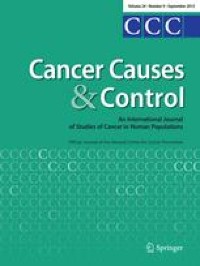Abstract
Purpose
Circulating inflammatory markers may predict prostate cancer (PC) outcomes. For example, a recent study showed that higher peripheral blood monocyte counts were associated with aggressive PC in Asian men undergoing radical prostatectomy (RP). Herein, we investigated whether peripheral monocyte count can predict long-term PC outcomes after RP in black and white men.
Methods
We retrospectively reviewed data on 2345 men undergoing RP from 2000 to 2017 at eight Veterans Affairs hospitals. Data on monocyte count within 6 and 12 months prior to surgery were collected. The study outcomes were biochemical recurrence (BCR), castration-resistant PC (CRPC), metastasis, all-cause mortality (ACM), and PC-specific morality (PCSM). Cox-proportional hazard models were used to assess the associations between pre-operative monocyte count and the above-mentioned outcomes accounting for confounders.
Results
Of 2345 RP patients, 972 (41%) were black and 1373 (59%) were white men. In multivariable analyses, we found no associations between monocyte count and BCR among all men (HR: 1.36, 95%CI 0.90–2.07) or when analyses were stratified by race (HR: 1.30, 95%CI 0.69–2.46, in black men; HR:1.33, 95%CI 0.76–02.33, in white men). Likewise, no overall or race-specific associations were found between monocyte count and CRPC, metastases, ACM, and PCSM, all p ≥ 0.15. Results were similar for monocyte count measured at 12 months prior to RP.
Conclusion
In black and white PC patients undergoing RP, peripheral monocyte count was not associated with long-term PC outcomes. Contrary to what was found in Asian populations, monocyte count was not associated with PC outcomes in this study.



Δεν υπάρχουν σχόλια:
Δημοσίευση σχολίου
Σημείωση: Μόνο ένα μέλος αυτού του ιστολογίου μπορεί να αναρτήσει σχόλιο.